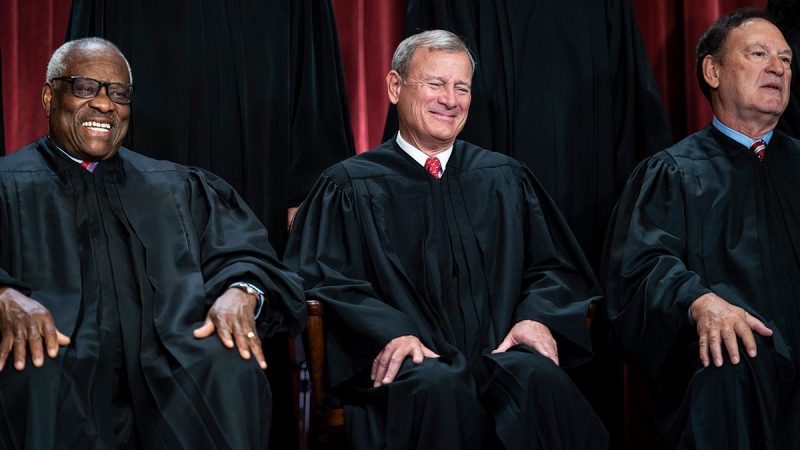**The Supreme Court Rules in Favor of CFPB, Brainchild of Sen. Elizabeth Warren**
In a landmark decision, the Supreme Court recently ruled in favor of the Consumer Financial Protection Bureau (CFPB), a regulatory agency established under the Dodd-Frank Act in 2010. The CFPB, often touted as the brainchild of Senator Elizabeth Warren, has had a tumultuous journey since its inception, facing challenges to its structure and authority. The recent ruling is seen as a significant win for consumer protection and financial regulation advocates.
The case in question, *Collins v. Mnuchin*, revolved around the constitutionality of the CFPB’s single-director structure and its independence from congressional or executive oversight. The plaintiffs argued that the CFPB violated the Constitution’s separation of powers by having a director who could only be removed by the President for cause. They contended that this structure unduly concentrated power in the hands of a single individual, insulated from checks and balances.
However, the Supreme Court, in a 5-4 decision, upheld the CFPB’s structure but struck down the provision that only allowed the President to remove the director for cause. The Court ruled that the CFPB’s mission of protecting consumers from unfair and deceptive financial practices was a legitimate government function that justified some degree of independence. Nevertheless, the removal provision was deemed unconstitutional as it impeded the President’s authority to supervise and direct the executive branch.
This ruling is significant for several reasons. It affirms the legitimacy of the CFPB as an essential regulatory body dedicated to safeguarding consumers in the financial marketplace. By upholding the agency’s existence and core mission, the Supreme Court has sent a clear signal that protecting consumers from financial abuse remains a key priority.
Moreover, the ruling clarifies the balance of power between the President and independent agencies. While recognizing the need for independence in certain regulatory bodies, the Court emphasized the President’s authority to oversee and direct executive agencies. This decision sets a precedent for similar independent agencies and reaffirms the principles of separation of powers and executive accountability.
Senator Elizabeth Warren, a fierce advocate for consumer rights and financial reform, hailed the Supreme Court’s decision as a victory for working families and the middle class. As one of the architects of the CFPB, Warren has long championed the agency’s role in holding financial institutions accountable and ensuring fair treatment for consumers.
Looking ahead, the CFPB will need to adjust its structure to comply with the Court’s ruling on the removal provision. While the agency’s core mission remains intact, changes to its leadership structure may be necessary to align with the Constitution’s requirements.
In conclusion, the Supreme Court’s ruling in favor of the CFPB marks a significant development in the realm of financial regulation and consumer protection. As the agency continues its work to safeguard consumers from predatory financial practices, this decision underscores the importance of accountability, balance of powers, and upholding the rights of individuals in the marketplace.


































